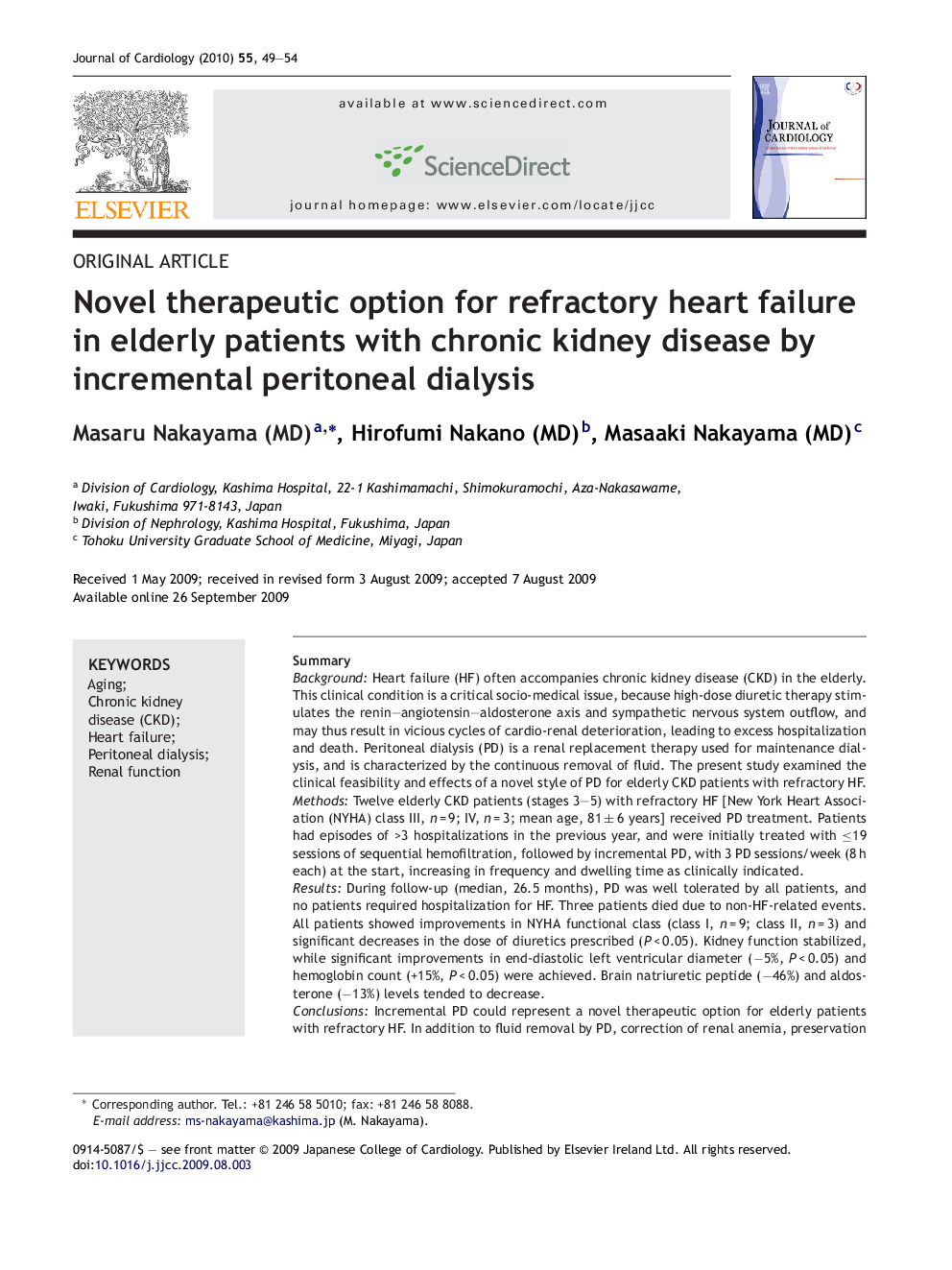| Article ID | Journal | Published Year | Pages | File Type |
|---|---|---|---|---|
| 2963472 | Journal of Cardiology | 2010 | 6 Pages |
SummaryBackgroundHeart failure (HF) often accompanies chronic kidney disease (CKD) in the elderly. This clinical condition is a critical socio-medical issue, because high-dose diuretic therapy stimulates the renin–angiotensin–aldosterone axis and sympathetic nervous system outflow, and may thus result in vicious cycles of cardio-renal deterioration, leading to excess hospitalization and death. Peritoneal dialysis (PD) is a renal replacement therapy used for maintenance dialysis, and is characterized by the continuous removal of fluid. The present study examined the clinical feasibility and effects of a novel style of PD for elderly CKD patients with refractory HF.MethodsTwelve elderly CKD patients (stages 3–5) with refractory HF [New York Heart Association (NYHA) class III, n = 9; IV, n = 3; mean age, 81 ± 6 years] received PD treatment. Patients had episodes of >3 hospitalizations in the previous year, and were initially treated with ≤19 sessions of sequential hemofiltration, followed by incremental PD, with 3 PD sessions/week (8 h each) at the start, increasing in frequency and dwelling time as clinically indicated.ResultsDuring follow-up (median, 26.5 months), PD was well tolerated by all patients, and no patients required hospitalization for HF. Three patients died due to non-HF-related events. All patients showed improvements in NYHA functional class (class I, n = 9; class II, n = 3) and significant decreases in the dose of diuretics prescribed (P < 0.05). Kidney function stabilized, while significant improvements in end-diastolic left ventricular diameter (−5%, P < 0.05) and hemoglobin count (+15%, P < 0.05) were achieved. Brain natriuretic peptide (−46%) and aldosterone (−13%) levels tended to decrease.ConclusionsIncremental PD could represent a novel therapeutic option for elderly patients with refractory HF. In addition to fluid removal by PD, correction of renal anemia, preservation of kidney function, and avoidance of high-dose diuretic therapy may play a role in maximizing clinical benefits.
